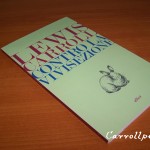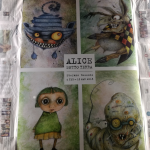Even if the last two fallacies were granted to the advocates of vivisection, their use in the argument must depend on the following proposition being true:—
7. That the evil charged against vivisection consists chiefly in the pain inflicted on the animal.
I maintain, on the contrary, that it consists chiefly in the effect produced on the operator. To use the words of Mr. Freeman, in the article already quoted, “the question is not as to the aggregate amount of suffering inflicted, but as to the moral character of the acts by which the suffering is inflicted.” We see this most clearly, when we shift our view from the act itself to its remoter consequences. The hapless animal suffers, dies, “and there an end:” but the man whose sympathies have been deadened, and whose selfishness has been fostered, by the contemplation of pain deliberately inflicted, may be the parent of others equally brutalised, and so, bequeathe a curse to future ages. And even if we limit our view to the present time, who can doubt that the degradation of a soul is a greater evil than the suffering of a bodily frame? Even if driven to admit this, the advocates of the practice may still assert—
8. That vivisection has no demoralising effect on the character of the operator.
“Look at our surgeons !” they may exclaim. “Are they a demoralised or a brutalised class? Yet you must admit that, in the operations they have to perform, they are perpetually contemplating pain—aye, and pain deliberately inflicted by their own hands.” The analogy is not a fair one ; since the immediatemotive—of saving the life, or diminishing the sufferings, of the person operated on—is a counteracting influence in surgery, to which vivisection, with its shadowy hope of some day relieving the sufferings of some human being yet unborn, has nothing parallel to offer. This, however, is a question to be decided by evidence, not by argument. History furnishes us with but too many examples of the degradation of character produced by the deliberate pitiless contemplation of suffering. The effect of the national bull-fights on the Spanish character is a case in point. But we need not go to Spain for evidence: the following extract from the Echo, quoted in the Spectator for March 20, will be enough to enable the reader to judge for himself what sort of effect this practice is likely to have on the minds of students:—
“But if yet more be necessary to satisfy the public mind on this latter point” (the effect on the operators),” the testimony of an English physiologist, known to the writer, maybe useful in conclusion. He was, present some time past at a lecture, in the course of which demonstrations were made on living dogs. When the unfortunate creatures cried and moaned under the operations, many of the students actually mimicked their cries in derision !The gentleman who related this occurrence adds that the spectacle of the writhing animals and the fiendish behaviour of the audience so sickened him, that he could not wait for the conclusion of the lecture, but took his departure in disgust.”
It is a humiliating but an undeniable truth, that man has something of the wild beast in him, that a thirst for blood can be aroused in him by witnessing a scene of carnage, and that the infliction of torture, when the first instincts of horror have been deadened by familiarity, may become, first, a matter of indifference, then a subject of morbid interest, then a positive pleasure, then a ghastly and ferocious delight.
Here again, however, the analogy of sport is of some service to the vivisector, and he may plead that the influence we dread is already at work among our sportsmen. This I will now consider.
9. That vivisection does not demoralise the character more than sport.
The opponents’ case would not, I think, suffer much even if this were admitted ; but I am inclined to demur to it as a universal truth. We must remember that much of the excitement and interest of sport depend on causes entirely unconnected with the infliction of pain, which is rather ignored than deliberately contemplated ; whereas in vivisection the painful effects constitute in many cases a part, in some cases the whole, of the interest felt by the spectator. And all they tell us of the highly developed intellect of the anatomical student, with which they contrast so contemptuously the low animal instincts of the foxhunter, is but another argument against themselves ; for surely the nobler the being we degrade, the greater is the injury we inflict on society. Corruptio optimi pessima.
La lettura continua a pagina 4!







Lascia un commento